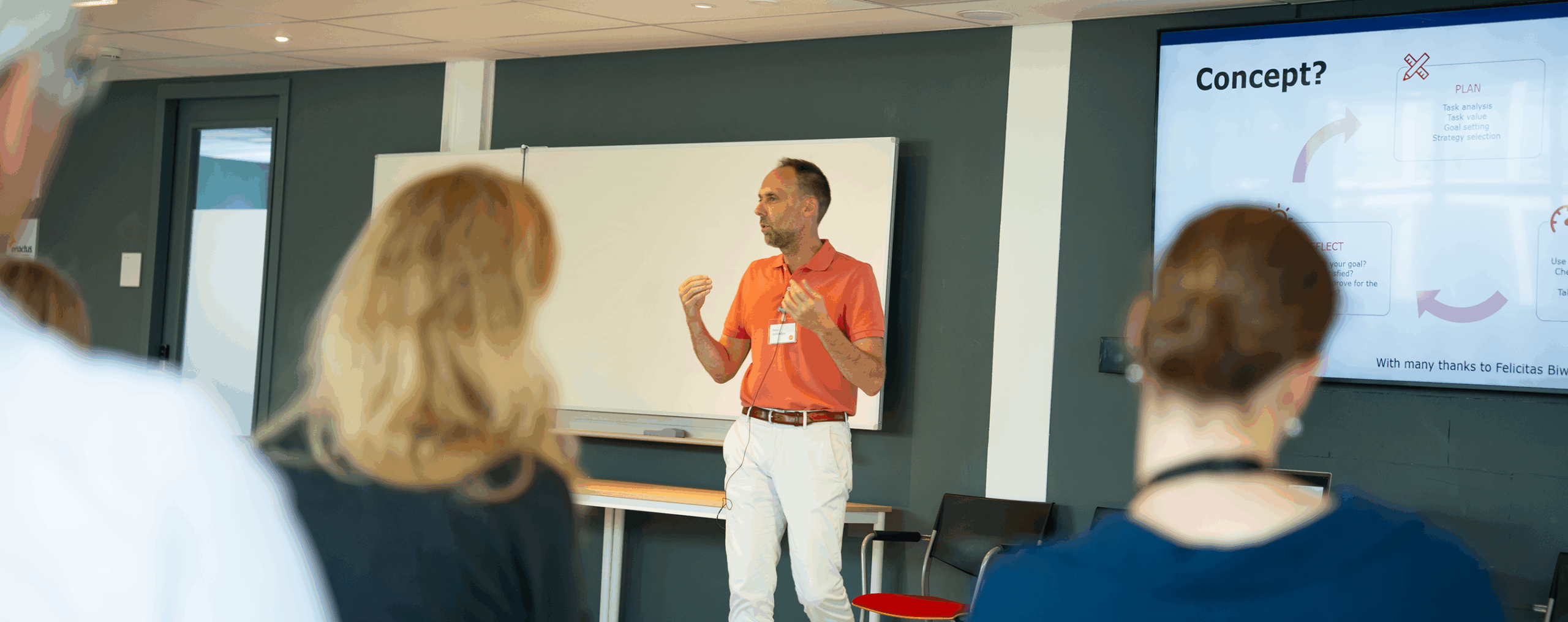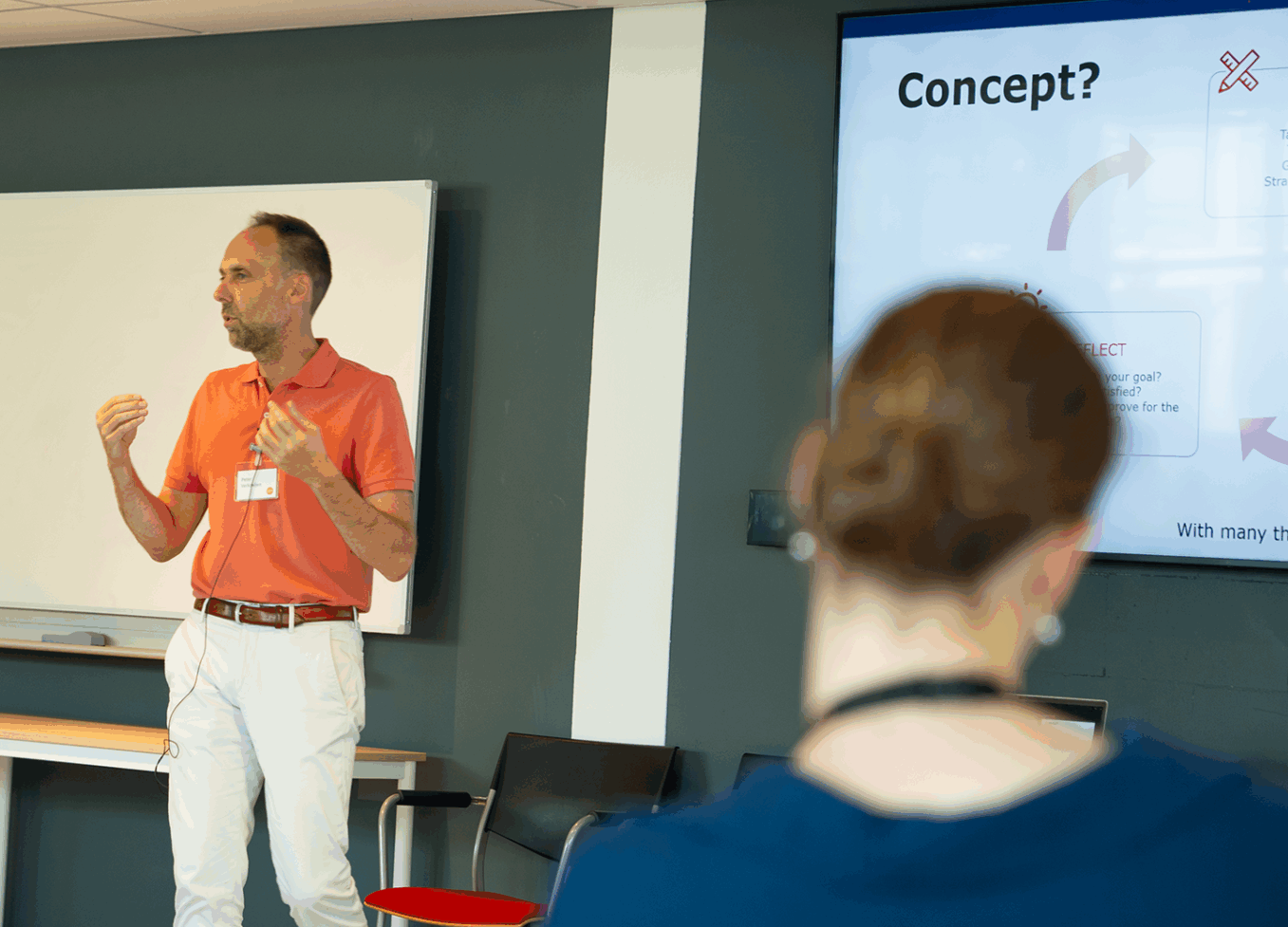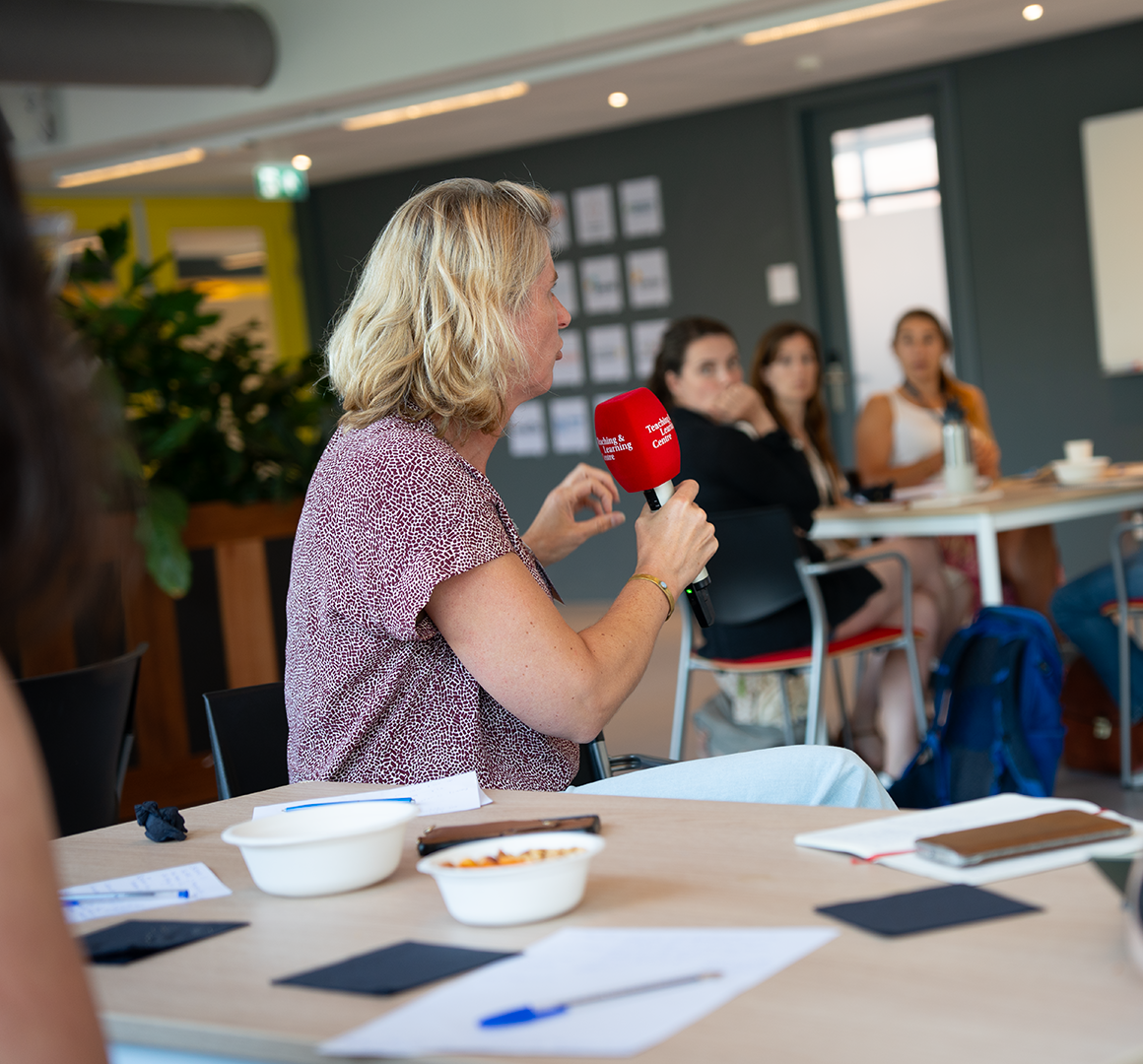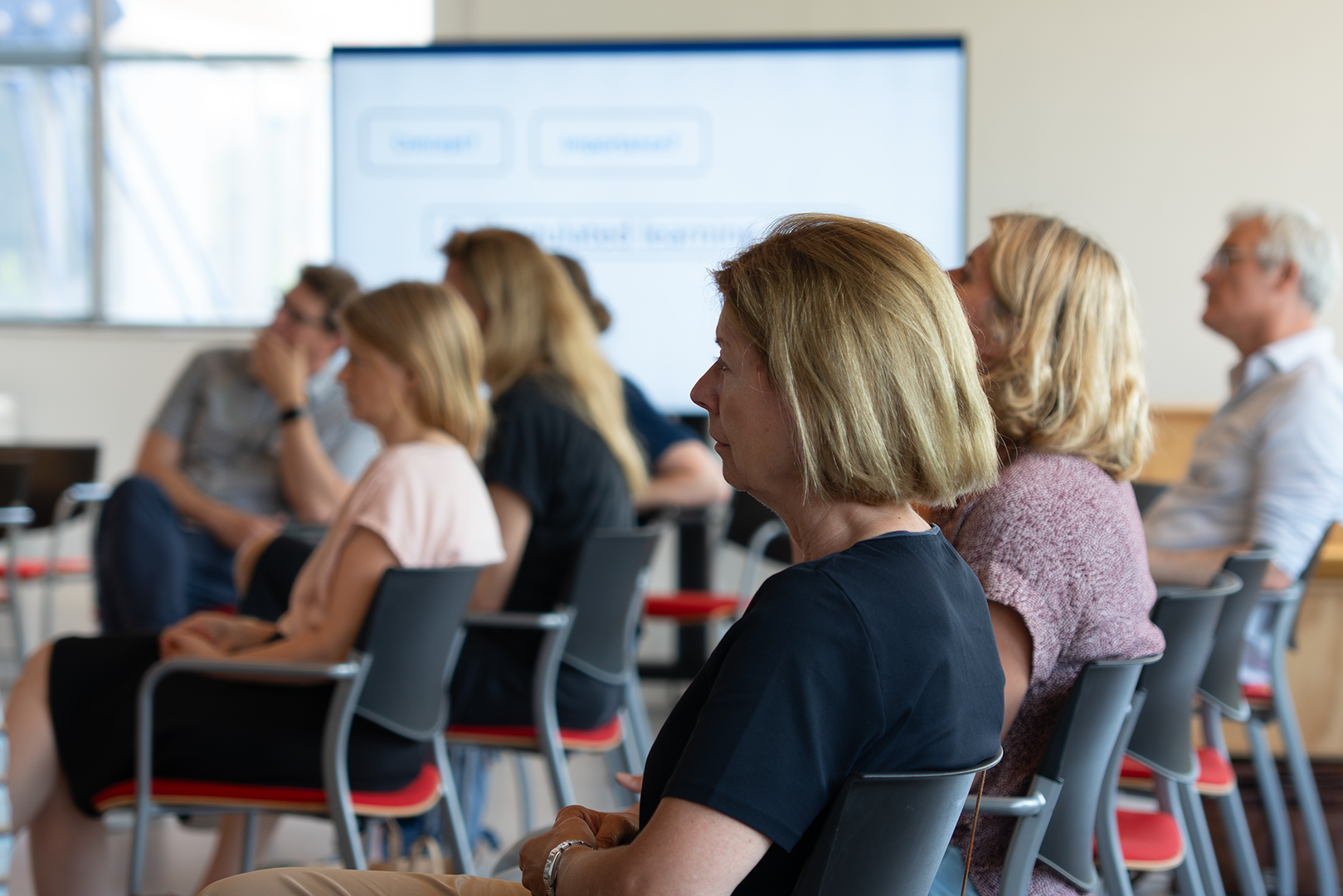
Event recap: Self-Regulated Learning (SRL)
In July 2025, TLC-FMG hosted a masterclass on Self-Regulated Learning (SRL) in higher education. Cognitive psychologist Prof. Dr. Peter Verkoeijen (Erasmus University Rotterdam / Avans University of Applied Sciences) guided participants through the theory and practical implications of SRL in higher education. On this page you can find the SRL event recap, and watch the entire masterclass below.
What is SRL?
Zimmerman (2002, p. 65) defines self-regulated learning (SRL) as “self-generated thoughts, feelings, and behaviors that are oriented to attaining goals”. Self-regulated learning is a cyclical process through which students plan, monitor, and reflect on their learning. The process is typically divided into three phases:
-
The forethought phase involves setting goals, planning, and self-motivation. The performance phase includes self-control, self-observation, and active engagement with the task.
-
The self-reflection phase entails evaluating performance and adjusting strategies for future learning (Zimmerman & Moylan, 2009).
-
By mastering these phases, students develop independence in their learning processes, enhancing their academic performance, motivation and well-being (SELFLEX, 2023).
Find more information in the seminar slides.

Why is it important to support SRL as teachers?
Self-regulated learning refers to the cyclical process in which students actively manage their own behavior, thoughts, emotions, and motivation to reach their learning goals. As higher education becomes increasingly flexible in terms of where, when, and how learning takes place, SRL has become an essential skill. Verkoeijen emphasized that SRL is not only linked to academic achievement but also to student well-being. In today’s context, where students report experiencing high levels of stress, this is no trivial matter.
The teacher’s role in supporting SRL
Following a brief refresher on Zimmerman’s SRL model, participants reflected individually and collectively on their beliefs, self-efficacy, knowledge, and skills related to SRL. This reflective practice led into a broader discussion about the different roles teachers can play in fostering SRL, each contributing uniquely to the student learning process. The INSPIRE list below may help you find your approach to SRL.
-
Instructors: explicitly teach effective strategies
-
Navigators: help students in goal setting, planning, and overcoming obstacles
-
Strategists: integrate SRL in classes/assignments (+ practice and feedback)
-
Promotors: stimulate SRL through authentic and relevant tasks
-
Innovators: use technology to enhance SRL
-
Role models: demonstrate, and explain your own SRL skills
-
Encouragers: stress the importance of mental effort, and make growth visible


How can we support students effectively?
Working in small groups, participants explored real-world scenarios: What typically goes wrong in students’ self-regulated learning? How can we recognize these issues? And most importantly, how can we support students effectively? These questions led to a set of concrete strategies and solutions. Two promising interventions were highlighted: the Study Smart Training (focused on teaching effective learning strategies) and the Motivation Motor (designed to enhance motivation and persistence).
The event concluded with a sharing of group insights and experiences. Participants left with practical tools and renewed inspiration to help students develop their capacity for self-regulated learning. It is important to carefully consider how to apply SRL in your specific educational context. The approach for supervising Master’s thesis students will look different from that in a first-year Bachelor’s course on academic skills. Additionally, it is valuable to reflect on SRL at the team level.






